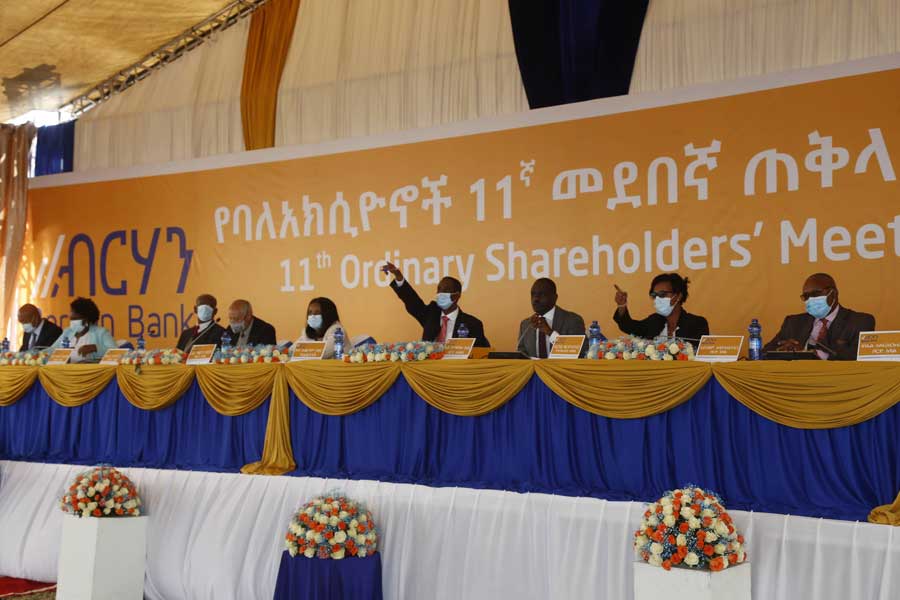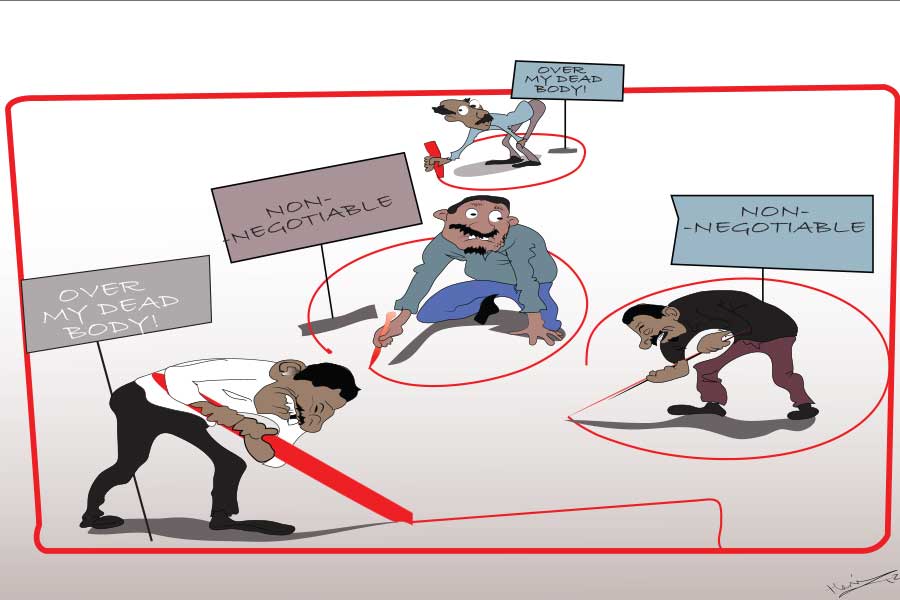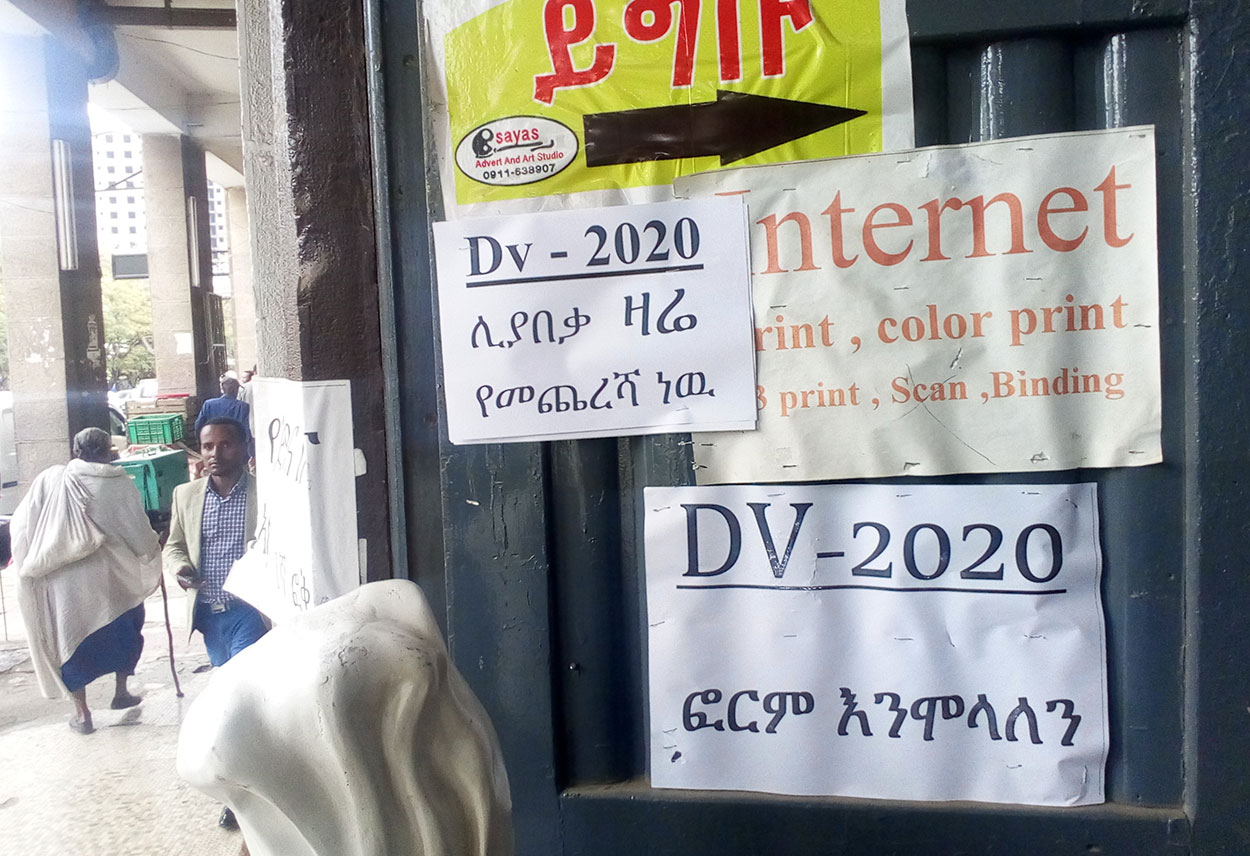
Jan 19 , 2019
By BEHAILU AYELE ( FORTUNE STAFF WRITER )
Claims control helped the quarter century old National Insurance Company of Ethiopia (NICE) to recorded a sizable 41.3 million Br in net profit in the past fiscal year, a staggering 60pc increase from the previous year.
The firm also boosted returns for its shareholders by 29.7pc to 497 Br a share.
The gross written premium of the company increased by 13pc to 247.2 million Br, retaining 90pc of the total production. The increase is close to the average industry growth of 14pc.
The result was attributed to a surge in income from investment, underwriting results and controlled claims cost by the management of the firm.
“We take risks based on capability, which is why we retained a large amount of the underwriting,” says Tesfaye Debela, CEO of the firm for the past four years.
Despite the increase in underwriting, NICE’s incurred claims remained the same with that of the preceding year.
The company paid 136.1 million Br for the claims that were filed. Net claims remained the same as the previous year.
“We very careful in giving insurance coverage,” says Tesfaye. “We took the evaluated risk and followed up on projects to ease the claims probability.”
Experts commend the accomplishment of the firm.
“The management of NICE deserves praise for how they have controlled the cost of claims,” says Abduleman Mohammed, a financial expert with over a decade and a half of experience.
NICE’s investment activities have also performed well, earning the firm 33.7 million Br from return on investment shares, especially from commercial banks, and time deposits.
The firm also earned 3.8 million Br from reinsurer’s commissions, but it was a decline of four percent from the preceding year. Abdulmenan believes that this requires attention, as it decreased despite more premium ceded to reinsurers.
The increase in income is accompanied by hikes in expenses, which the expert describes as alarming. Administrative costs such as employee benefits and salaries went up by 27pc, reaching 66.1 million Br.
For the firm’s management, the increase in expenses comes from a need to remain competitive in the market.
“We adjusted the salaries of our employees and increased outlets,” Tesfaye told Fortune, about the company’s hiring of 24 staff members for a total of 294. “Besides, the cost of rent was challenging.”
The company also recruited 20 sales agents during the reporting period.
The firm opened three additional branches, reaching 34 outlets across the country, 40pc of which are in Addis Abeba.
Such a balance sheet has meant that NICE’s total assets increased to half a billion Birr, up by 13.6pc reaching 494.7 million Br from the preceding year. The firm kept half of its assets in interest-earning deposits and cash.
The company’s paid-up capital also surged by 20.9pc to 89.2 million Br, and it has capital and non-distributable reserves of 109.9 million Br. The paid-up capital and the non-distributable reserves of NICE account for 22.2pc of its total assets, which the expert considers a strong position.
Other Insurance companies also increased their total capital by 26.4pc, making the industry's total capital 5.5 billion Br. The 16 private insurers including NICE make up 72.1pc of the total.
The company was not without its challenges during the reporting period.
The sluggish economic growth has affected the performance of the firm, according to Alemu Reba, the board chairperson.
“The macroeconomic growth of Ethiopia was the lowest compared to the past decade,” wrote Alemu on his report to the shareholders. “This has affected the underwriting result of our company.”
Ethiopia's economy grew by 7.7pc in 2018, below the government’s target of double-digit growth.
PUBLISHED ON
Jan 19,2019 [ VOL
19 , NO
977]

Editorial | Jan 04,2020

Life Matters | Aug 19,2023

Fortune News | Dec 10,2018

Featured | Dec 22,2018

Fortune News | Apr 27,2025

Dec 22 , 2024 . By TIZITA SHEWAFERAW
Charged with transforming colossal state-owned enterprises into modern and competitiv...

Aug 18 , 2024 . By AKSAH ITALO
Although predictable Yonas Zerihun's job in the ride-hailing service is not immune to...

Jul 28 , 2024 . By TIZITA SHEWAFERAW
Unhabitual, perhaps too many, Samuel Gebreyohannes, 38, used to occasionally enjoy a couple of beers at breakfast. However, he recently swit...

Jul 13 , 2024 . By AKSAH ITALO
Investors who rely on tractors, trucks, and field vehicles for commuting, transporting commodities, and f...

Nov 1 , 2025
The National Bank of Ethiopia (NBE) issued a statement two weeks ago that appeared to...

Oct 25 , 2025
The regulatory machinery is on overdrive. In only two years, no fewer than 35 new pro...

Oct 18 , 2025
The political establishment, notably the ruling party and its top brass, has become p...

Oct 11 , 2025
Ladislas Farago, a roving Associated Press (AP) correspondent, arrived in Ethiopia in...